#rural marketing campaign
Explore tagged Tumblr posts
Text
Struggling with Rural Sales Performance? How "Rural Sales Manager Training AU" Can Fix It
Managing a rural sales team in Australia comes with unique challenges—long distances, diverse customer needs, and a rapidly evolving market. Without the right training, sales managers often struggle to build effective teams, meet targets, and adapt to shifting market trends. This is where Rural Sales Manager Training AU plays a critical role in driving success.
By integrating marketing strategy development, rural sales leaders can not only improve their teams' performance but also create sustainable growth strategies tailored to their market. Let’s explore how structured training can help overcome key pain points and lead to long-term business success.
Why Do Rural Sales Managers in Australia Struggle to Meet Their Targets?
Rural sales environments differ significantly from urban markets. Here are the top challenges rural sales managers face:
Long Travel Distances & Low Customer Density – Unlike city-based sales teams, rural managers must coordinate sales efforts across vast areas, making efficiency a constant struggle.
Limited Sales Training & Support – Many rural sales managers receive little formal training, leading to poor team performance and inconsistent sales outcomes.
Market Fluctuations & Economic Uncertainty – Seasonal trends and unpredictable market shifts make it difficult to maintain steady revenue.
Recruitment & Retention Issues – Hiring and keeping skilled salespeople in rural areas is a major pain point due to limited local talent and high turnover rates.
A structured Rural Sales Manager Training AU program addresses these issues by equipping managers with advanced sales techniques, leadership skills, and strategic planning tools.
Learn more about rural sales training here: Agrarian Rural Sales Training
How Can "Rural Sales Manager Training AU" Improve Team Performance?
Sales managers who undergo structured training can transform their teams in multiple ways:
Better Territory Management – Learn how to optimize travel routes and customer outreach to minimize costs and maximize sales.
Improved Sales Coaching Skills – Gain the ability to mentor and develop high-performing rural sales teams.
Stronger Customer Relationships – Build long-term trust with rural clients through effective engagement strategies.
Increased Sales & Revenue – Implement proven techniques to close deals faster and improve conversion rates.
With specialized training, rural sales managers can turn struggling teams into high-performing sales units.
What Role Does Marketing Strategy Development Play in Rural Sales Success?
Rural sales training alone isn’t enough—successful managers must also understand marketing strategy development to align sales efforts with business goals. Here’s why:
Identifying the Right Target Market – A well-developed marketing strategy helps managers pinpoint the most profitable customer segments.
Optimizing Sales Channels – Whether it’s in-person visits, digital marketing, or distributor partnerships, the right strategy ensures sales teams focus on the most effective channels.
Competitive Positioning – Knowing how to differentiate a product or service is crucial in crowded or niche rural markets.
Data-Driven Decision Making – Using market research and sales data helps managers make informed choices rather than relying on guesswork.
By integrating marketing strategy development into their approach, rural sales managers can drive better sales outcomes and build sustainable growth.
Learn more about rural marketing strategies here: Agrarian Marketing Strategy Services
What Are the Key Elements of an Effective Rural Sales Manager Training Program?
An effective Rural Sales Manager Training AU program should include:
Sales Leadership & Team Management – Training in coaching, motivation, and performance tracking.
Strategic Planning & Territory Management – Techniques for optimizing sales coverage in rural areas.
Customer-Centric Sales Techniques – Methods for building trust and closing deals in agricultural and regional markets.
Digital & Traditional Marketing Integration – How to use online tools and offline strategies effectively.
Sales Analytics & Performance Metrics – Understanding key sales data to drive smarter decision-making.
Rural sales managers who receive this level of training can navigate market complexities with confidence.
Is Rural Sales Training Worth the Investment?
Many companies hesitate to invest in sales training due to cost concerns. However, failing to train rural sales managers can result in:
High employee turnover
Missed revenue opportunities
Poor customer retention
Inefficient sales operations
In contrast, businesses that prioritize Rural Sales Manager Training AU see higher sales productivity, better team morale, and stronger customer relationships—making it a worthwhile investment.
Final Thoughts: The Key to Rural Sales Success
Rural sales in Australia is tough, but the right training and marketing strategy can make all the difference. By equipping managers with the skills to handle real-world challenges, businesses can build stronger teams, increase revenue, and create lasting customer relationships.
Need help with Rural Sales Manager Training AU? Explore tailored training solutions here: Agrarian Rural Sales Training
Want to improve your marketing strategy development? Get expert insights here: Agrarian Marketing Strategy Services
Investing in the right training today can lead to long-term success in the competitive rural sales landscape.
#rural marketing campaign#rural marketing strategy#Rural sales manager training NZ#Rural sales manager training AU
0 notes
Text
CONCEPT - An Open Letter to the House of Dior: EXTRRNAL CONCEPT Introducing “The Wicker Witch’s Poison Apple” CONCEPT
CONCEPT – An Open Letter to the House of Dior: EXTRRNAL CONCEPT Introducing “The Wicker Witch’s Poison Apple” CONCEPT Dear House of Dior, I am Jade Ann Byrne, a proud Californian with deep roots in agriculture and a lifelong admirer of Dior. From my earliest days, lying among wildflowers in meadows, I’ve been enveloped by the natural scents of almond blossoms, red Los Angeles geraniums, and the…
#@JadeAnnByrne#2028 Olympics#almond blossoms#beauty innovation#bold women#boysenberries#California diversity#California inspiration#duality#enigmatic scent#fragrance marketing#French luxury#inclusive beauty#Los Angeles spirit#luxury#luxury fragrance#Maison Dior#modern femininity#modern storytelling#perfume campaign#red geraniums#rural California#Tags Dior#The Wicker Witch’s Poison Apple
0 notes
Text
XLRI Students Boost EKAL Campaign with Generous Donation
Jamshedpur institution partners with Friends of Tribals Society for social impact XLRI’s collaboration with FTS Jamshedpur sets stage for future initiatives, including marketing project for EKAL products and field visits to rural schools. JAMSHEDPUR – A substantial donation to the EKAL campaign marked a significant partnership between XLRI students and the Friends of Tribals Society at a recent…
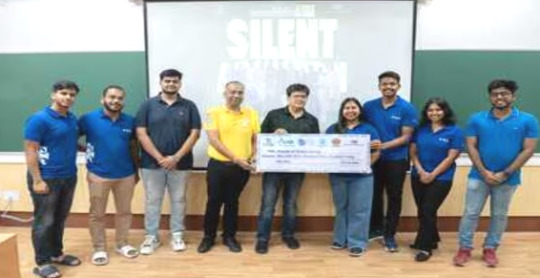
View On WordPress
#academic-NGO collaboration#शिक्षा#education#EKAL campaign#EKAL products marketing#Ekal Vidyalaya visits#Friends of Tribals Society#Jamshedpur social initiatives#rural education support#student philanthropy#tribal welfare projects#XLRI donation
0 notes
Text
"Lead is a neurotoxin; it causes premature deaths and lifelong negative effects. It’s said “there is no safe level of lead exposure” — as far as we know, any lead causes damage, and it just gets worse the more exposure there is.
After a 20-year, worldwide campaign, in 2021 Algeria became the final country to end leaded gasoline in cars — something the US phased out in 1996. That should make a huge difference to environmental lead levels. But lots of sources remain, from car batteries to ceramics...
Bangladesh phased out leaded gasoline in the 1990s. But high blood lead levels have remained. Why? When researchers Stephen Luby and Jenny Forsyth, doing work in rural Bangladesh, tried to isolate the source, it turned out to be a surprising one: lead-adulterated turmeric.
Turmeric, a spice in common use for cooking in South Asia and beyond, is yellow, and adding a pigment made of lead chromate makes for bright, vibrant colors — and better sales. Buyers of the adulterated turmeric were slowly being poisoned...
But there’s also good news: A recent paper studying lead in turmeric in Bangladesh found that researchers and the Bangladeshi government appear to have driven lead out of the turmeric business in Bangladesh.
How Bangladesh got serious about lead poisoning
The researchers who’d isolated turmeric as the primary cause of high blood lead levels —working for the nonprofit International Center for Diarrheal Disease Research, Bangladesh — went to meet with government officials. They collected samples nationwide and published a 2019 follow-up paper on the extent of the problem. Bangladesh’s Food Safety Authority got involved.
They settled on a two-part approach, starting with an education campaign to warn people about the dangers of lead. Once people had been warned that lead adulteration was illegal, they followed up with raids to analyze turmeric and fine sellers who were selling adulterated products.
They posted tens of thousands of fliers informing people about the risks of lead. They got coverage in the news. And then they swept through the markets with X-ray fluorescence analyzers, which detect lead. They seized contaminated products and fined sellers.
According to the study released earlier this month, this worked spectacularly well. “The proportion of market turmeric samples containing detectable lead decreased from 47 percent pre-intervention in 2019 to 0 percent in 2021,” the study found. And the vanishing of lead from turmeric had an immediate and dramatic effect on blood lead levels in the affected populations, too: “Blood lead levels dropped a median of 30 percent.”
The researchers who helped make that result happen are gearing up for similar campaigns in other areas where spices are adulterated.
The power of problem-solving
...When the Food Safety Authority showed up at the market and started issuing fines for lead adulteration, it stopped being a savvy business move to add lead. Purchasers who were accustomed to unnatural lead-colored turmeric learned how to recognize non-adulterated turmeric. And so lead went from ubiquitous to nearly nonexistent in the space of just a few years.
That’s a better world for everyone, from turmeric wholesalers to vulnerable kids — all purchased at a shockingly low price. The paper published this month concludes, “with credible information, appropriate technology, and good enough governance, the adulteration of spices can be stopped.”
There’s still a lot more to be done. India, like Bangladesh, has widespread adulteration of turmeric. And safety testing will have to remain vigilant to prevent lead in Bangladesh from creeping back into the spice supply.
But for all those caveats, it’s rare to see such fast, decisive action on a major health problem — and impressive to see it immediately rewarded with such a dramatic improvement in blood lead levels and health outcomes. It’s a reminder that things can change, and can change very quickly, as long as people care, and as long as they act."
-via Vox, September 20, 2023
#lead#lead poisoning#turmeric#bangladesh#south asian food#south asia#public health#public safety#government#good news#hope
758 notes
·
View notes
Text

I assume this is because I criticized Kamala Harris in my last post.
I want to address this because it's important to me and frustrations currently consuming my life, and I'm very emotionally unwell right now. I want to share my experiences and make a point I feel is important at this time.
Once again, this is very unfitting of the smut fanfiction blog and will be deleted later, even though I'm sure this is a huge follower-losing post, but whatever.
Forgive me for rambling so much, but I encourage you and people who think like this to read in entirety.
I realize things are tense right now in the US.
Part of the reason for my inactivity the past while (besides multiple hospitalizations) is that I'm glued to my screen every night now because I'm very scared. I've been spending all my time researching, watching videos from economists, etc.
(Preemptively, sources for everything I'm about to say: the FEMA Privacy Act Statement itself, the official CPB database, Helene People Finder, United States Council of Foreign Relations, Samaritan's Purse, NYC.gov, Starlink, Politico, ABC, CNBC, georgia.gov, nc.gov, tn.gov, my own life)
The US is an extremely high-tension, polarized political climate, largely due to the bipartisan system.
However, no one should be immune from criticism.
All politicians should be criticized when they do harm. I am allowed to criticize her, and I will.
Criticizing one candidate is not the same thing as endorsing/supporting their opposition.
3,000+ Appalachians are missing. The current death toll makes this the deadliest single event in the US since 1862. A higher death toll than Hurricane Katrina, a higher death toll than the events of 9/11/2001, a higher death toll than any mass shooting.
However, it is largely going completely ignored, and mainstream news media has barely acknowledged it, in part due to elections, but largely because the people who live in Appalachia are poor, rural people. And the harsh reality is that poor people's lives are not treated with the same value as people of higher classes.
FEMA continues to do nothing, and the feds are now threatening to take children away from homeless parents... yet they blocked donations of trailers and campers from nearby areas that would help those people to, you know, not be homeless. A kind group of Amish have come down from Pennsylvania to build shelters, and FEMA may tear them down too since they don't have "permits."
Harris had the opportunity to do something, and has the authority to order FEMA agents to act differently, but she chose to exploit the situation for publicity, then leave and otherwise ignore them. She then went on to pay Beyonce $10,000,000 to speak for 5 minutes.
That deserves to be criticized.
Her campaign continues to claim a good economy and job market, when inflation and cost of living has peaked, and just this month, their policies actually have officially led to one of the worst employment outcomes the United States has seen since the Great Depression, disproportionately affecting low-income workers.
That deserves to be criticized.
She has a bad track record during her time in the judicial system for the way her actions harshly affected underprivileged people, especially Jamal Trulove, who was terribly wronged.
That deserves to be criticized.
Furthermore, the reason FEMA/the government does not have money for Appalachia is for a few reasons, all of which were ordered, facilitated or allowed by the current administration:
1) we've sent over $100 BILLION to the IDF so they can keep blowing up hospitals and kindergartens,
2) we sent $175 BILLION to Zelensky so he can keep sending young men into violent deaths even if its against their will,
3) we just sent $100+ million to Lebanon even after the hurricane crisis, meaning the federal government explicitly chose to prioritize foreign aid over its own people,
4) money was taken directly from FEMA reserves for crises like ours, and used as part of a whopping $150,000,000,000 spent on mass migration — including free flights, a $20 million welcome center with a free-use "game room" with dozens of Xboxes plus free food/lodging, and in NY, an average of $1400 prepaid debit card per individual each month.
Meanwhile, Appalachians get a one-time $750 per family, and if you have insurance to cover anything, it's a LOAN you have to pay back (many "fact-checkers" are claiming this is false when its literally in the FEMA eligibility statement). Many of the independent line workers FEMA hired for repairs are reporting they have not been paid AT ALL since starting.
In other words, the money that was specifically reserved for saving lives in times of crisis was spent on video games and free money handouts.
That, holy hell, deserves to be criticized.
Secondly, I want to address the message itself.
I realize that a lot of the american tumblr userbase is 1) people young enough that they're still partially financially dependent on parents and/or 2) are, like most of the US statistically, earning middle-class incomes, and live in fairly population-dense environments.
Most people outside the US, on the other hand, are getting their perceptions of life, politics, etc in the US from the posts/narratives of people within the aforementioned groups, popular culture, and their own local media, so their perspective is often quite limited, to no fault of their own. I'm sure my perspective of life in other countries is also very limited.
Most of you live in places other than where I live, and live very different lives from mine. As humans, we are naturally prone to subconsciously assuming the lives of others are not too different from our own, and do not naturally stop to consider how various factors might affect people's lives and decisions.
We are social beings, prone to adopting the beliefs of others who have the same experiences and thereby the same limited perspectives as us, especially in ideologically homogenous environments.
However, I have just as much of a voice as anyone else.
My hope is that I can use my words and experience to foster empathy for one another between different people in a very polarized climate at a very tense time.
I'm originally from a fairly rural community of about 8,000 people, largely low-income, low-education, evangelical blue-collar workers and farmers, in the Bible Belt.
It is well-known that this demographic overwhelmingly voted for Trump. I don't deny that. I visit home a lot, I see the yard signs everywhere, flags hanging from pickup trucks and farm fenceposts, lots of red hats.
There is a reason for that.
The administration of the past four years has utterly destroyed many rural, low-income communities.
It caused a huge spike in job layoffs, leading to homelessness, drug abuse, hunger and poverty for many already low-income people, and for select communities, violent crime.
I'm fortunate enough to have had parents better off than most of the community, but I'm self-sufficient now, and I am in the bottom 20% of incomes in the US, even with a degree. I could write endless paragraphs on how hard it is to get by, but to summarize for the sake of shortening — it's very, very rough.
Everything has become drastically more expensive, very rapidly over the course of a few years. Groceries are 3x their 2021 prices. I had to get a guarantor for a one-bedroom apartment.
Many rural families resort to drastic measures to get by. Small farmers are being financially strangled out of their way of life.
The actions of the Biden-Harris administration is the reason a huge portion of my extended family was laid off and now face total destitution, as there are simply no jobs left available.
The Biden-Harris border and crime policies are responsible for the brutal rape of a significant number of women and girls in this geographic region. Statistically, these rapes have quadrupled compared to the previous administration.
A woman was raped and stabbed to death about a mile from where I live.
Our nearby neighbor, a cow farmer back home, was attacked on his own property.
I have personally faced multiple instances of sexual harassment and aggression, some of which were very frightening. I know other girls nearby experienced the same or worse.
Alcoholism and hard drugs due to the spike in unemployment and poverty has ruined many lives, and help is often hard to access in rural regions.
A woman my mom was acquainted with ended her own life in 2023 because her children were taken from her due to her drug addiction and poverty. People I played with on the church playground as kids are now unemployed heroin addicts.
I've watched my mom driven to tears after realizing how drastically her income tax increased, and how little she has left after them despite working around the clock.
All of these can be traced back to the policies and actions of the current administration, and the current Harris-Walz platform's proposals will drastically increase it all — largely voted for by people who live in economic situations and locations as such that they are fairly unaffected by these consequences, so they may not understand how it affects these people.
I could write endless paragraphs of all the people I know who have been at best negatively affected, at worst utterly ruined, by the current administration.
Since I have the unique background of understanding these people whilst having more liberal values as an individual, with a broad range of people I interact with now, I have tried to have discussions on this over the last year or so, in real life and virtually. I believed that raising awareness would make people on the left-leaning side empathize with them, and inspire dialogue to work to implement ways to account for the concerns and needs of the rural poor, and incorporate that into their existing proposals.
I was incorrect. I've been very polite and respectful in how I address others in these discussions. In the vast majority of interactions, I was not given the same in return.
A few were receptive, which I appreciate, but in most of my experiences, the same group that is known for encouraging empathy, apparently doesn't apply that philosophy to people they dislike — no matter how I presented it, they immediately rushed to demonize, censor, humiliate, shame and gaslight me, and expressed callous apathy at best, if not active contempt, for my people.
They say "that doesn't happen," and I think they genuinely believe that due to limited perspective — but the reality is that they're simply in a position of privilege as such that it isn't happening to them.
Similarly, what you have to understand is that from the perspective of many rural people in red areas, their experience is that more privileged people inflicted this suffering on them by voting for it, then silence and shame them for speaking out about it.
Likewise, they also have a limited perspective — for them, the issue I see is that they adamantly believe the "other side" is already well-aware of the effects their choices have on others. I don't think this is true, I think many on the other end are unaware of these issues.
This dual lack of understanding creates mutual resentment and bitterness, which fuels tension.
I will say that trying to explain how girls in my community were assaulted or my own harassment, only to have it spammed with replies along the lines of "don't care" or "deserved" or calling me a liar, seeing posts mocking or wishing harm on people like my family accumulate tens of thousands of likes, having people I care about referred to as "trailer trash," passive-aggressive statements implying I'm too unattractive for a man to harass — this, along with other distasteful actions I've seen, has pushed me away from the left as a community, and I don't think that's unreasonable.
Similarly, labeling people you know nothing about as bad people, without making any effort to understand their circumstances or what they actually believe and why, will drive people away and make them resentful.
My community is multiracial, women are highly valued in southern culture for various reasons, and they themselves are marginalized and underprivileged. They're kind people who have been good to me.
I haven't really met any people who are hateful, nor is hate the reason for their votes — they're all voting as they do because they are scared, exhausted, grieving and desperate. A lot of people in the area never voted before, but are now registering to vote in droves because they feel their backs are against the wall, so to speak.
Moreover, Orange Man himself redirected $14 million dollars to Appalachia, continues to raise awareness for them in speeches, and Musk, who is associated with him, has a team working to help Appalachians. He's also the only noteworthy figure that has acknowledged certain issues affecting them.
They realize that the situation in Appalachia could just as easily be them in the future, that they'd be given the same treatment.
This has resulted in a lot of rural poor people feeling that he cares more for their lives, compared to Biden/Harris who more or less neglected them. Which, considering that, is a fairly reasonable conclusion on their end.
Finally, it is true that blue voters tend to be in favor of abolishing or ruining crucial aspects of our way of life that, I say this politely, they do not fully understand, while the people here want to preserve their way of life.
So, while I have more liberal values that differ from most people back home, I don't believe they are bad people. They are reacting very reasonably to the circumstances they're in.
All I ask of others is to consider, no matter where you are or what beliefs you align with, and no matter what happens tomorrow, that the "other side" to your own may not be the evil people you have been led to believe they are, but are humans whose lives are simply different from yours, and they are acting in accordance to their experiences, circumstances, and fears.
The growing trend of demonizing political opposition with no attempt at empathy, only creates more pain in the world. I hope this has helped to foster better understanding, and that people can be kind to one another.
That is all I wanted to say.
104 notes
·
View notes
Text

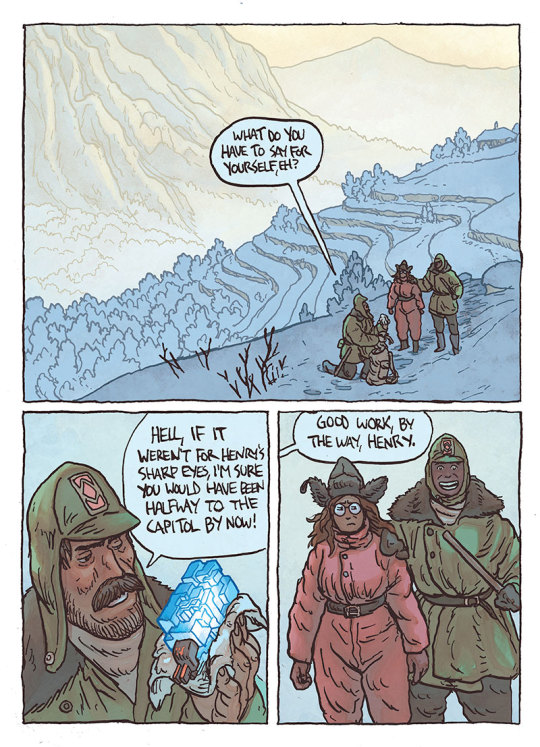
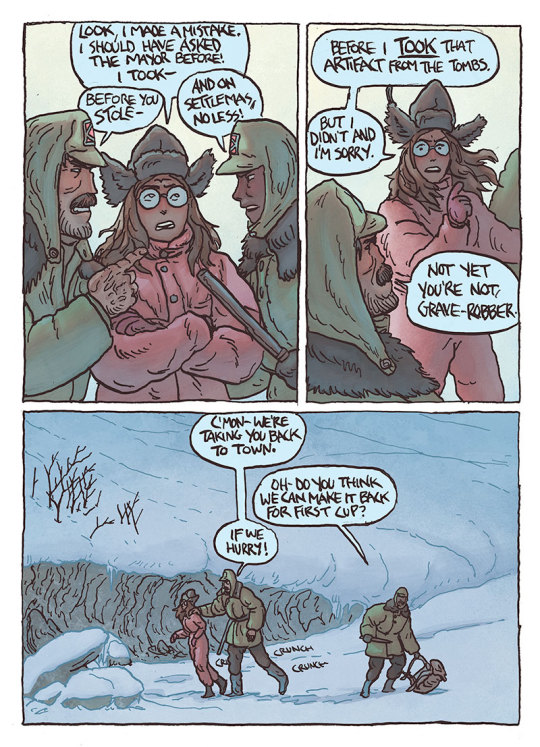
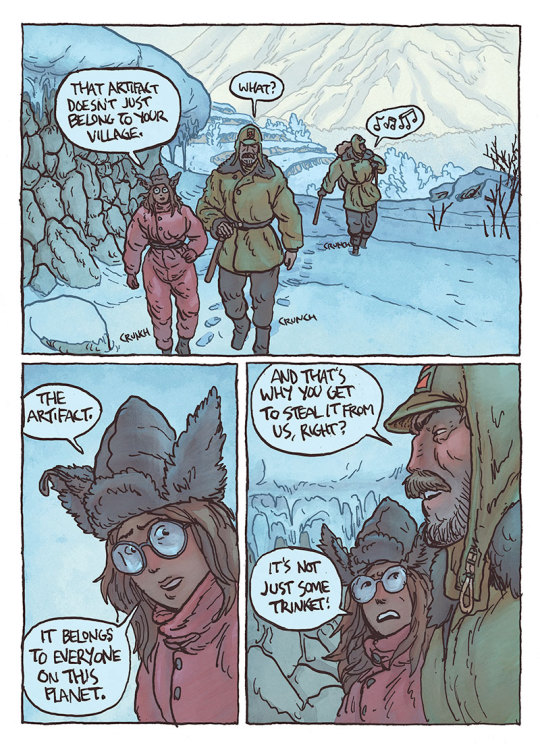
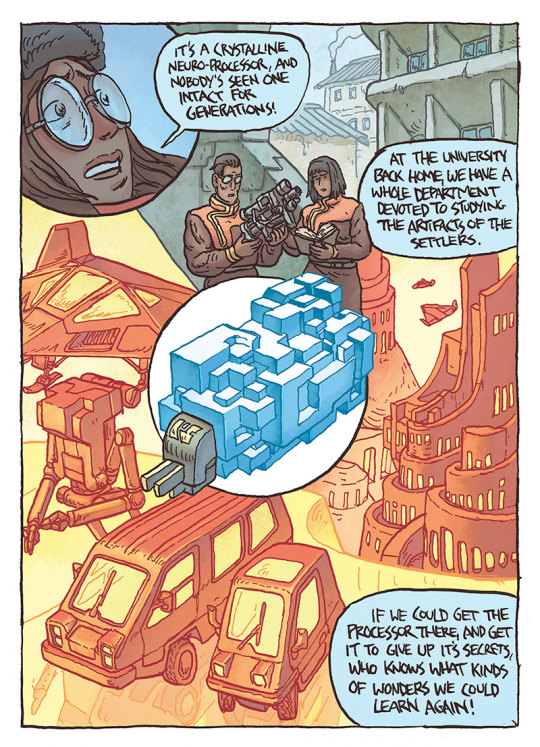
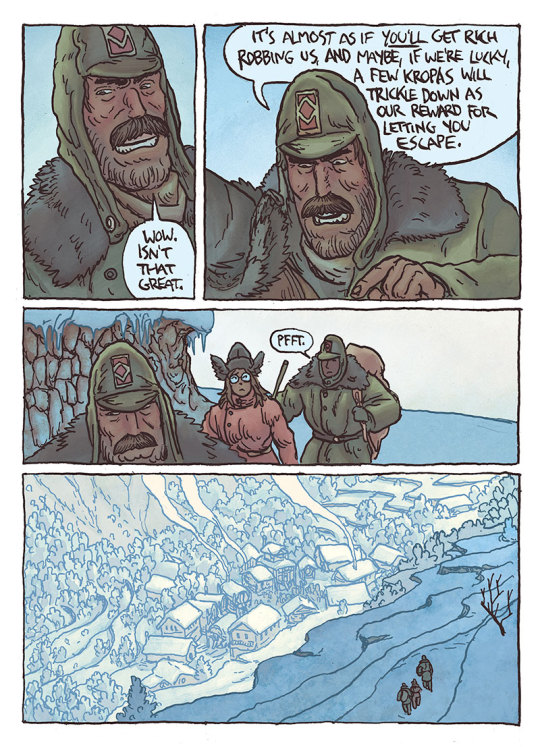
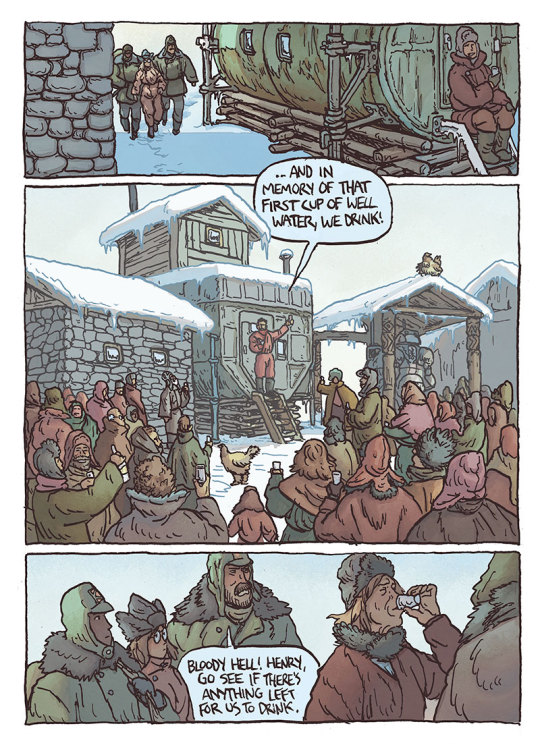
A little press release from Image comics - we're putting out a mass market edition of Griz Grobus! Press release follows:
PORTLAND, Ore. 12/07/2023 — The high fantasy, graphic novel Kickstarter sensation, Griz Grobus, by co-writer/artist Simon Roy (Prophet, Jan's Atomic Heart and Other Stories) and co-writer Jess Pollard, with colors by Sergey Nazarov, will be available in trade paperback format for the first time this June 2024 from Image Comics.
Griz Grobus was originally a popular Webtoon sequential webcomic that leveled up its exposure with the 2021 launch of a Kickstarter campaign for a stunning hardcover edition. The campaign ignited fandom fervor, was fully funded in under a day, and raised nearly $70K—far exceeding the stretch goal. This Summer’s forthcoming paperback edition will bring this roaring success story to an even wider audience of readers.
"Part of what we wanted to make, in Griz Grobus, was a story that felt like a foreign film from a country you haven't heard of," said Roy. "Natural, familiar elements, sitting harmoniously alongside the new and unfamiliar. The proposition of getting to introduce a whole new audience to our little pocket universe, and the worlds within it, is very exciting!"
Set in the same sci-fi universe as Roy's Habitat,Griz Grobus is another tale of life after the collapse of the interstellar empire. But unlike Habitat—where a once utopian orbital community found itself descending into cannibal tyranny—the characters of Griz Grobus inhabit the rural world of Altamira, where post-utopian frontier life has blossomed into something a bit more wholesome.
Pollard added: "I can definitely say it is one of the funniest, most delightful things I've ever been a part of, and I laugh every time I read the story, as if I'm reading it for the first time. I hope readers will feel the same warmth when they read this edition, whether it be for the first time, the second, or third.”
Griz Grobus tells two parallel, intertwined tales from the far-off colony world. High in a sleepy mountain village, the overzealous academic ambitions of a young scribe lead to the resurrection of the town’s ancient colonial-era priest-bot. This long-defunct pastor finds himself in a world that has passed him by, but refuses to simply accept his obsolescence, much to the chagrin of the scribe and the local townsfolk. The second story, a mise-en-abyme, is Altamira’s most famous novel (being avidly read by the characters of the first story). It is a fantasy tale about a war-god who gets trapped in the body of a goose, and the efforts of one pacifist cook to delay the war-god’s bloody return to the battlefield.
This lush, intricately detailed, standalone fable is perfect for fans of Hiyao Miyazaki, Asterix, and Arthur C. Clarke.
The Griz Grobus trade paperback (ISBN: 9781534397866) will be available at local comic book shops on Wednesday, June 5 and independent bookstores, Amazon, Barnes & Noble, Books-a-Million, and Indigo on Tuesday, June 4.
Griz Grobus will also be available across many digital platforms, including Amazon Kindle, Apple Books, and Google Play.
279 notes
·
View notes
Text
Sometimes a business quietly stop supporting queer people, diversity, and the environment and that sucks, obviously. But sometimes they make an entire press statement and say how they’re embracing the bigot money with their whole chest:

Link to the press statement.
So, yeah. Fuck them. Bigot bucks only go so far, and they aren’t about to buy out your fucking shit dog food because you yee-hawed their hatred. Hope your business fails.
Alt text below:
Text:
STATEMENT
ISc
TRACTOR*
SUPPLY CO
June 27, 2024
For more than 85 years, Tractor Supply has been focused on one thing... serving Life Out Hero. Every day our 50,000 Team Members take eare of our eustomers like family. We deeply value our relationship with our customers and the communities we call home.
We are passionate about being good neighbors in our hometowns because without you, we would not be what we are. It is imperative to us that our customers hard-cared dollars are taking care of our Team Members and the communities we all love. As you supported us, we have invested millions of dollars in veteran causes. emergency response, animal shelters, state fairs, rodeos and farmers markets. We have also invested in the future of rural America. We are the largest supporter of FEA and have longstanding relationships with 4-H and other educational organizations.
We work hard to live up to our Mission and Values every day and represent the values of the communities and customers we serve. We have heard from customers that we have disappointed them. We have taken this feedback to heart.
Going forward, we will ensure our activities and giving tie diroctly to our business. For instance, this means we will:
1. No longer submit data to the Human Rights Campaign
3. Rether ou Team Were En pronie Growline enterie, netok ing and supering the austeing a good neighbor and stop sponsoring nonbusines
activities like pride festivals and voting campaigns
3. Whire u cre martin grand Del eat it i enterie rain cornet
We will continue to listen to our customers and Team Members. Your trust and confidence in us are of the utmost importance, and we don't take that lightly.
As we look forward to celebrating our nation's independence, we also celebrate our more than 50,000 team members across 2,250 stores. Rural communities are the backbone of our nation and what make America great. We are honored to be a part of them.
We are always here and ready to serve you and your family with our legendary service for the life you love. See you in the stores.
#tractor supply#press statement#tractor supply statement#bigotry#welp#time to close out the credit card I had with them#love living in the#rural america#where this is the only store to get pet food and gardening shit#PSA
67 notes
·
View notes
Text
Claim your ROLL FOR LOVE sticker sheet!


My wonderful publisher, Running Press Kids, has this incredibly cute exclusive preorder offer going on! You’ll get a sticker sheet with all three of these stickers, hand-drawn by Ricardo Bessa, the same artist who did the book cover that I’m so in love with. I can’t wait to put them on everything, possibly including my face. Here’s how you get them:
1) Preorder ROLL FOR LOVE from the retailer of your choice. (If you want your copy to be signed and/or personalized, you can preorder from Bluebird Bookstop.)
2) Fill out this form hosted by Running Press Kids and upload a picture of your receipt.
3) Wait for your stickers to arrive in the mail! They’ll be shipped out on pub day, April 8th.
The deadline is Monday, April 7, 2025 at 11:59pm ET, so don’t wait too long! The form is open to U.S. residents; Canadian readers can click on the form link and send an email to the address provided.
International friends and library purchase requesters, I’m working on an option for you; stay tuned!
Pre-orders matter A LOT.
I’d so appreciate it if you could help me get the word out about this pre-order offer. Preorders are the best way to support authors; they tell publishers and bookstores that there’s demand for a particular author/book. If there’s early momentum, a book can even get additional marketing and support pre-release, which is HUGE. Queer books need more help than ever in 2025.
Back of the book description under the cut:
A second-chance queer romance about two teens whose in-world D&D characters fall in love, but in IRL . . . things are more complicated, perfect for lovers of Ashley Poston and Becky Albertalli.
Harper Reid's summer is not off to a great start. After the death of her grandpa, she moves across the country, leaving her friends and Dungeons & Dragons group behind. She wasn’t exactly planning to start her senior year on the farm where she spent her childhood summers, but running into Ollie Shifflet—former best friend and first crush—makes things much better. When Harper discovers Ollie and her friends are starting a new D&D campaign, she quickly joins the group. As Harper and Ollie reconnect in the real world, romantic tension begins to build between Harper’s brash barbarian and Ollie’s proud paladin, but it's all just part of the game . . . right?
Ollie's future depends on keeping her bisexuality private while Harper's dreams include an out-and-proud life in their rural town, but as their feelings continue to grow with each gaming session, their relationship begins threatening everything they've worked so hard to build. As the school year comes to a close and the campaign's final boss looms on the horizon, Harper and Ollie must decide: are their feelings more than just a fantasy? Because if they want a second chance at love, they'll have to fight for it, both in-game and in real life.
#dungeons & dragons#d20#roll for love#sapphic books#lgbtq books#I really hope y’all love this book because I sure do#Extremely personal personally meaningful to me#I love my country girls so much#and their nerdy friend group too#MK England#ttrpgs
18 notes
·
View notes
Text

LETTERS FROM AN AMERICAN
November 7, 2024
Heather Cox Richardson
Nov 07, 2024
Today the Trump family posed for a post-election photo. Missing from the group was former first lady Melania Trump. Joining the family was billionaire Elon Musk, who supported Trump’s campaign both through his ownership of X, formerly Twitter, and then with $132 million in cash and with apparent giveaways to get voters to give the campaign personal information.
As an immigrant from South Africa, Musk is barred from the presidency himself by the U.S. Constitution, which requires that a president be born in the U.S. (out of the Framers’ concern that a foreign country could put a puppet in the presidency). But he is now very close to Trump and stands to gain significantly from a Trump presidency, both through deregulation and government contracts, and through Trump’s planned tariffs on Chinese imports that will enable Musk to monopolize the electric vehicle market in the U.S. Musk also would like a victory in the culture wars; he is strongly opposed to transgender rights.
After the election results came out, Musk posted on X, “Novus Ordo Seclorum,” Latin for “New World Order.”
At Trump’s election party, Trump said: “We have a new star: Elon. He is an amazing guy. We were sitting together tonight—you know he spent two weeks in Philadelphia and different parts of Pennsylvania campaigning? He's a character, he's a special guy. He's a super-genius, and we have to protect our geniuses, we don't have that many of them. We have to protect our super-geniuses.”
Trump’s new closeness with Musk presents an issue for the Republican Party. The president-elect is 78 and has shown signs of mental and physical deterioration, making it possible that someone will need to take his place at some point in the next four years.
The vice president–elect, current Ohio senator J.D. Vance, who is backed by billionaire Peter Thiel, is constitutionally the next in line for the presidency, but neither Musk nor Vance has Trump’s popular support, making it unclear who will take over the leadership of the party if such a takeover is necessary. Whether either can command Trump’s supporters is also unclear.
What is clear is that neither of them has much experience in elected office. Vance was elected senator just two years ago, and Musk comes from the business world.
There is another, major problem for the party, as well: Trump won the election in part by promising everything to everyone, but the actual policies of the MAGA party are unpopular, even with many Republican voters.
Notably, Trump has said he will appoint Musk to head a new government efficiency commission, and Musk has vowed to cut “at least $2 trillion” from the federal budget. Such cuts would decimate government services, including food programs and Social Security, Medicare, and Medicaid. Supplemental nutrition programs disproportionately benefit rural areas, and Social Security, Medicare, and Medicaid are used much more heavily in counties that support Trump than those that don’t.
That will be a hard circle to square.
So will Trump’s promise to lower consumer costs while also putting tariffs of 10% to 20% on all foreign imports and of 60% on imports from China. Tariffs are borne by consumers, so by definition they will drive prices up. These two promises cannot be reconciled.
Trump has promised mass deportations, and much of his base is fervently behind them. The Republican National Committee even had signs saying “MASS DEPORTATION NOW” made up for attendees to wave at the party’s convention.
Priscilla Alvarez and Alayna Treene of CNN reported today that Trump’s allies have been preparing for mass detentions and deportations of undocumented immigrants, and the stock prices of private prison companies GEO Group and CoreCivic have soared since Trump’s election. Steven T. Dennis of Bloomberg reported that on an earnings call today, GEO chief executive officer Brian Evans told investors that filling currently empty beds could bring in $400 million a year and that the company can scale up its current surveillance, monitoring, and transportation programs to handle millions of immigrants. “This is to us an unprecedented opportunity,” he said.
But deporting up to 20 million people will be a logistical nightmare and is projected to cost from $88 billion to $315 billion a year. At the same time, much of the U.S. economy depends on undocumented immigrants, and Republican businessmen will certainly object to losing their workers.
Tom Homan, who served as acting director of Immigration and Customs Enforcement under Trump in his first term, backed away from some of the extremes of Trump’s immigration policy when he told CBS last month: “It’s not gonna be—a mass sweep of neighborhoods. It’s not gonna be building concentration camps. I’ve read it all. It’s ridiculous…. They’ll be targeted arrests. We’ll know who we’re going to arrest, where we’re most likely to find ‘em based on numerous, you know, investigative processes.”
Meanwhile, Democratic state lawmakers have been preparing for a potential Trump administration for more than a year, and some are putting down public markers that they will not cooperate with the extreme policies of the Trump administration.
Trump vowed to begin his mass deportation plan in Aurora, Colorado, where he maintained—contrary to the statements of local Republican officials—that Venezuelan gangs had taken over the city. Aurora is a suburb of Denver, and yesterday the mayor of Denver, Mike Johnston, told a reporter he would not cooperate with requests that are “immoral or unethical or unfair.”
California governor Gavin Newsom called an emergency session of the California state legislature to convene on December 2, “to help bolster our legal resources and protect our state against any unlawful actions by the incoming Trump Administration.” It will focus on funding lawsuits against any actions that impact civil liberties, reproductive rights, protection for immigrants, and climate initiatives. Newsom said the California lawmakers “will seek to work with the incoming president—but let there be no mistake, we intend to stand with states across our nation to defend our Constitution and uphold the rule of law.”
California has the fifth largest economy in the world, and its population of 39 million people is more than four times the 9.59 million people in Hungary, the country from which MAGA Republicans are taking much of their ideological vision.
Illinois governor J.B. Pritzker, who has been called a “happy warrior,” held a press conference today, telling reporters that he will continue working to keep Illinois “a place of stability and competent governance” and vowing to protect the people of his state no matter what the new administration does. “To anyone who intends to come take away the freedom and opportunity and dignity of Illinoisans: I would remind you that a happy warrior is still a warrior,” he said. “You come for my people, you come through me.”
Trump has made it clear he intends to have a say in the decisions of the Federal Reserve, which manages interest rates, and during his first term he frequently attacked Fed chair Jerome Powell, whom he appointed, for not lowering rates to boost the economy. Trump’s advisors have suggested the president can gain power over the nation’s finances by removing members of the Fed in his next term.
Today, when reporters asked Powell if he would resign before Trump takes office, he said no. When asked if Trump could fire or demote him or the other Fed governors, Powell was firm: “Not permitted under the law.”
LETTERS FROM AN AMERICAN
HEATHER COX RICHARDSON
#Letters From An American#Heather Cox Richardson#resist#Jerome Powell#J.B.Pritzker#Illinois#California#Colorado#mass deportations
21 notes
·
View notes
Text
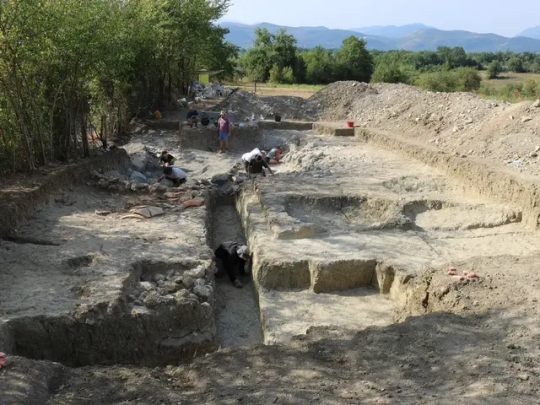
The Roman Republic Crushed a Rebellion So Completely That This City Became a Landfill
Researchers studying the ancient site of Fregellae reveal the consequences of challenging the Roman army
Archaeologists have just uncovered an ancient city that the Roman army so thoroughly besieged that it was left uninhabited for nearly 200 years.
Researchers from the Leibniz Center for Archaeology (LEIZA), have long believed that the ancient city, Fregellae , was once allied with Rome, until residents rebelled against the republic around 125 B.C.E. But historical records from the time of the siege are quite sparse, and the center has been engaging in archaeological research to learn more about the rebellion.
"It is only mentioned in two or three sources," Dominik Maschek, an archaeologist with LEIZA, tells Live Science’s Tom Metcalfe. "We hear about the siege, they tell us these people rebelled against the Romans, but we don't know why."
Fregellae sat about 60 miles outside of Rome and was established as a Roman colony. Scholars hold a few theories as to what could have caused the uprising, including the desire for expanding human rights like land ownership and full citizenship.
The conflict took place while Rome’s consuls were waging a military campaign elsewhere. This timing could have been strategic, as the residents of Fregellae may have believed the government lacked the resources to dispatch another army.
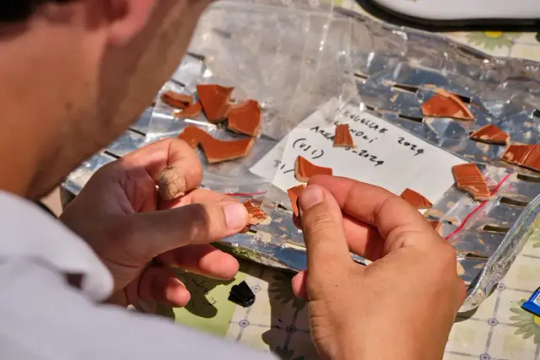
Unfortunately for them, the empire was more than prepared. Archaeologists discovered a Roman military camp outside of the city, surrounded by a ditch and rampart. They believe that the camp was created for the siege.
“The violent destruction caused lasting damage to the entire economy of the region,” Maschek says in a LEIZA statement. “The landscape remained uninhabited for over 170 years until the area was finally used as a rubbish dump.” (Small pottery shards at the site discarded years after the siege, reavealed that the area became a landfill.)
In addition to the smaller fragments, researchers also found larger pottery pieces that were part of large vessels that stored produce. Ancient seeds at the site indicate that they were housed in a villa used to cultivate fruit, grain and wine. “The wine was probably not only produced for the local market,” says Mascheck via Google Translate in the statement. “It is quite possible that it was traded within Mediterranean exchange networks as far as Spain and France.”

The villa, the oldest in the city that archaeologists have found, was built 80 years before Fregellae’s siege. A layer of fire damage points to the fact that the Romans attacked the building and its crops at the same time as the city.
“It’s fascinating that we were able to uncover the architectural structure of such an early production site,” Maschek adds. “Despite traces of fire and the almost complete removal of the building materials, the finds offer valuable insights into the rural life and economic activities of the inhabitants at the time.”
By Julia Binswanger.
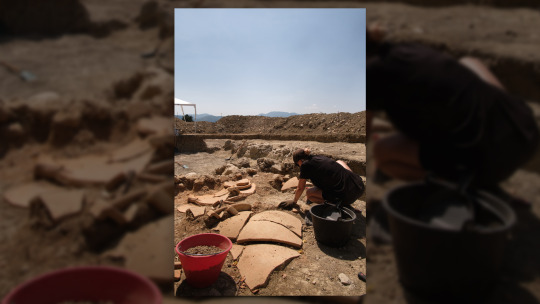
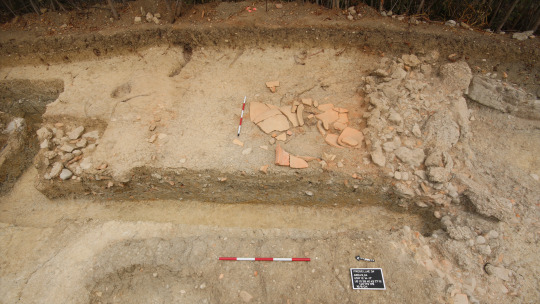
#The Roman Republic Crushed a Rebellion So Completely That This City Became a Landfill#ancient city of Fregellae#ancient artifacts#archeology#archeolgst#history#history news#ancient history#ancient culture#ancient civilizations#roman history#roman empire
23 notes
·
View notes
Note
Okay! So, is there an RPG that's more rural, like farms and fields, windmills and carts, swamps and forests, but also still like big monsters and magic? Vibes wise, something akin to Amphibia the show, or Atomicrops the game. I'm sure one could just repurpose any regular RPG to make a world like that, but I'm curious :3c
THEME: Farming Plus
Hello friend, so I have a few games here that feel at least slightly fantastical, as well as a game that definitely works as a post-apocalyptic kind of game, although I don’t think any of the games listed here have the cartoonish-ness of either Apmhibia or Atomicrops. My main goal was to find games that felt like they communicated a slice-of-life style of game, while making room for a setting that feels outside of our normal experience. I hope you still find something that works for you!
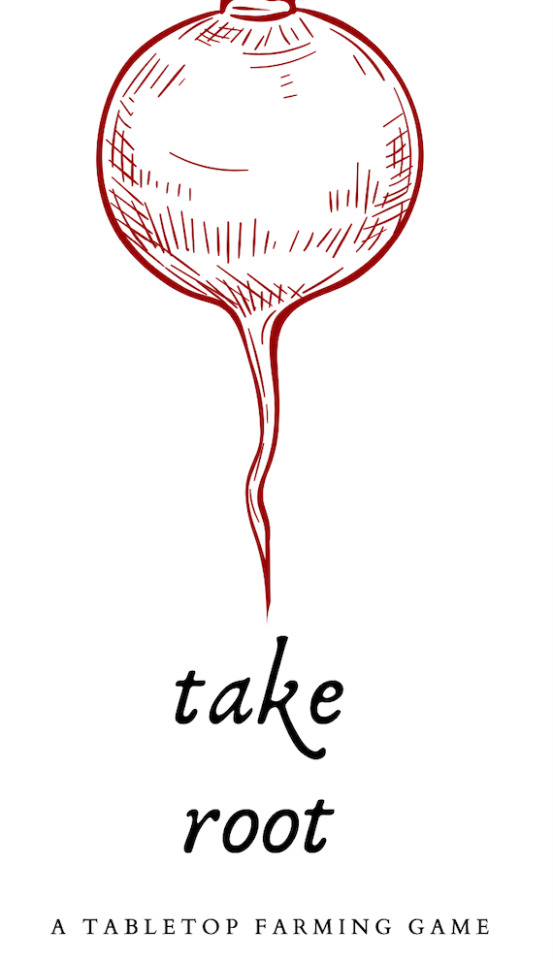


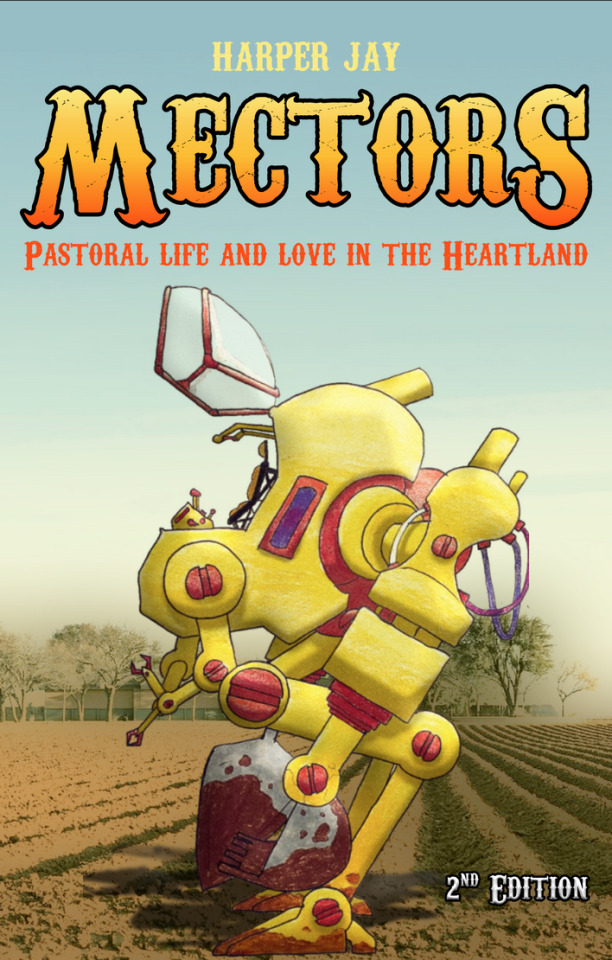
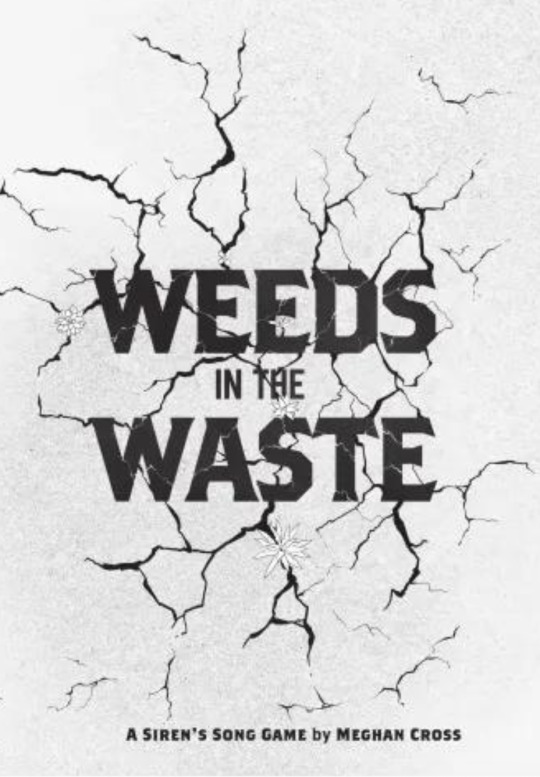
Take Root, by katykoop.
You've achieved the dream! You have a farm, in a cool place full of forests and the mysterious dungeon keep, and there is the promise of glory-- with a festival at the very end of the year. Play against several farmers, with a world master controlling it all, to win by having the most points in your farm display.
Each season is condensed into 9 days, with harvest on the 4th and the 8th. Unlock cool items through random events with NPC's, buy livestock, and traverse the dungeons of Dungeon Keep.
This is take root.
Take Root is a very procedural game, with each player responsible for their own farm, which they are tasked with caring for until harvest and the bringing of your fruits to market. The phases of the game are (predictably) sorted into 4 seasons with 9 days in each season, with two market days per quarter of the year. Different seasons have different basic crops, and certain items are more valuable than others.
However, you’re not just farming in Take Root - you’re also venturing into dungeons, and trying to romance select NPC’s. Diving into the Dungeon Keep is dangerous, but could have you coming away with rare items that give you money for seeds or items that allow you to fulfill mini quests - such as wooing the love of your choice, for example. The end of the game results in a winner - the player with the highest accumulated points, acquired through selling items, adventuring, and romancing NPCs.
All in all, Take Root is streamlined and simple, and yet manages to combine both dungeon delving and farming into one neat little brochure.
Farmtasy Simulator, by Guanaco Games.
The goal of this game is to build up your farm by managing resources, while dealing with threats both mundane and fantastic. Using cards for the encounters and dice to determine the outcome of actions taken, the player will gain resources and try to figure out how best to use them to continue building their farm. This game is meant to be played with one player and a GM. Farmtasy Simulator can be used as a supplemental mini-game for an on-going fantasy campaign, or as a standalone to enjoy some agricultural fantasy hijinks.
This is meant to be a two-player game, with one player and one GM. The character has dice and five stats with varying modifiers, while the GM has a deck of cards that they will pull from over the course of each year, used to generate encounters that will make the farming difficult. Farmtasy Simulator appears to be primarily designed as an add-on to another game, incorporating farming mechanics into a larger story. I think it might be a neat way to watch time pass for one character who’s trying to settle down and start a farm - perhaps each player takes their turn running through the simulator with the GM, or the GM use this as a mini-session with the only other player available to build their backstory before they went adventuring.
What’s So Hard About Farming?, by K.Petker.
This is a game about working on a farm and dealing with the triumphs and hardships of such a life. It might not be any kind of farm or farmers you’re familiar with, but the connection to the growing green and the earth is still there. Regardless of the season, there’s work to be done. And things might get a little weird.
I don’t own this game, but my experience with What’s So Cool About…..? games is one of light rules and plenty of freedom to let you take those rules where you like. What I expect from this game is just enough rules to give you a reason to roll dice, and the rest of the world is up to you.
On the plus side, this means that if you want to farm in a swamp, or in a post-apocalypse… well, you can do that! On the downside, the experience won’t fundamentally change according to to the setting unless you decide to do a bit of game design yourself, which is a delightful challenge for some, and an unnecessary amount of labour for others, so take from that what you will!
Mectors, by Harper Jay.
After the war, thousands upon thousands of bipedal mechanized fighting vehicles (or “Bimechs”) were left scattered across the land. Many were brought back to the capital cities to be repaired or scrapped, but the majority of them were too damaged to be easily transported. With the war won, the victors simply left their mechanical refuse in the battlefields to rust and wither.
In Mectors, players take on the role of a farmer, miner, fisher, carpenter, or some other worker in a labor intensive field. Mector Owners come from all kinds of backgrounds. Some own a Mector that’s been in their family for generations. Others came across theirs recently, through purchase or luck. And a rare few have managed to piece their own together using scraps from decommissioned Mectors, but this is even harder than it sounds. No matter how they got it, they now have a powerful tool with a long history.
I’ve recommended Mectors before for a similar request, and I think it definitely holds up as a great option for a fresh take on the slice-of-life farming sim - because it involves mechs! The setting is post-war, in a country that has learned to beat their technological swords into highly efficient plowshares - and the troubles that plague your settlements are less sinister and just the problems of a small community, such as the mushroom fungus spirit who is willing to guide lost travellers out of the cave, but also can’t seem to stop herself from feeding them mushrooms that also leech away their memories. If you want to tell stories about people solving everyday problems, set in an agricultural setting that’s wholly divorced from our own, I recommend Mectors.
Weeds in the Waste, by Megan Cross.
Weeds in the Waste is a solo storytelling game about tending a garden in a post apocalyptic wasteland.
Determine the state of your wasteland, create your gardener, plant your seeds, and tend your garden as you play through the seasons in the wastes. It is a narrative, storytelling game played using 2d6s and a 6x6 grid, as well as a series of prompts.
As primarily a solo game, much of the tone and pace of Weeds in the Waste is set by you, the singular player. This includes describing how the world ended, and how your garden started, as well as what kind of gardener you are. The game moves through different phases for every season, indicating what parts of your hard work pay off, and what parts are unfruitful.
The end game (and reflection phases) revolve around what withers, and where - which I think is truly reflective of the post-apocalyptic themes in this game. Try as you might, the current conditions of the wasteland can only be so fruitful, and you will have to learn how to live with a drastically reduced yield in comparison to the work that you’ve put in.
There are also rules for multiple players of Weeds in the Waste, so you can also make this a collaborative effort, answering the questions together, and strategically planting your crops as best as you can.
I’d Also Recommend….
My Small Town Farming Recommendation Post (some overlap with this one)
Grandpa’s Farm, by Tyler Crumrine.
Iron Valley, by M.Kirin.
23 notes
·
View notes
Text
Solving Rural Sales Challenges with Strategy and Training
Rural businesses in Australia face unique hurdles—geographical barriers, lack of skilled teams, and ineffective marketing approaches. These challenges often lead to inconsistent sales and wasted resources. Combining marketing strategy development with tailored rural sales training in Australia can provide actionable solutions.
What Are the Key Challenges of Rural Businesses?
Operating in rural markets brings distinct pain points, such as:
Long Distances and High Costs: Reaching dispersed customers increases operational expenses.
Talent Shortages: Sales teams often lack training specific to rural customer needs.
Poorly Targeted Marketing: Generic campaigns fail to resonate with local audiences.
Addressing these requires strategies that align marketing and sales efforts effectively.
How Does Marketing Strategy Development Address These Issues?
A strong marketing strategy helps resolve many pain points, including:
Localized Campaigns Campaigns tailored to rural markets foster deeper engagement and customer loyalty.
Improved Resource Use Targeted marketing minimizes waste by focusing efforts on high-value regions and demographics.
Streamlined Communication Using the right channels ensures better customer reach, whether through social media, radio, or community events.
Learn more about creating impactful strategies at Agrarian Marketing Services.
Why Is Rural Sales Training a Game-Changer?
Without proper training, even the best strategies fall short. Rural sales training focuses on:
Market Insight: Understanding rural consumers' specific needs and preferences.
Relationship Building: Establishing trust, critical for long-term success in rural settings.
Technology Integration: Leveraging CRM systems for better customer management.
Discover tailored sales training options at Agrarian Rural Sales Services.
What Does a Successful Rural Sales Training Program Include?
To tackle rural-specific challenges, a training program should cover:
Market Research Skills Teams learn to assess local demographics and identify high-potential markets.
Effective Selling Techniques This includes objection handling, trust-building, and upselling methods specific to rural buyers.
Digital Tool Utilization Training in CRM systems ensures consistent customer follow-ups and data-driven decisions.
How Do Marketing and Sales Work Together for Rural Success?
Aligning marketing and sales ensures seamless operations:
Marketing Attracts Leads: Campaigns drive interest and inquiries.
Sales Converts Leads: Skilled teams turn inquiries into revenue.
Insights Fuel Growth: Sales data informs future marketing strategies.
This synergy is key to overcoming rural market challenges.
FAQs About Marketing Strategy and Rural Sales Training
1. How are marketing strategies tailored for rural areas? They focus on local preferences, effective communication channels, and cost-efficient resource use.
2. Does rural sales training improve conversion rates? Yes, it equips teams with the skills needed to close deals and build long-term customer relationships.
3. What tools can support rural businesses? CRM systems and analytics platforms help streamline operations and track performance.
4. How long does it take to see results? Most businesses notice improvements within three to six months of implementing strategies and training.
Conclusion
Addressing rural business challenges requires a blend of effective marketing strategy development and rural sales training in Australia. These efforts not only improve customer outreach and conversion rates but also ensure sustainable growth.
#rural marketing campaign#rural marketing strategy#marketing strategy development#sales coaching New zealand#Sales Training Services#rural sales training Australia
1 note
·
View note
Quote
“Rug-pulling” The Working Class The same people who voted for him, are reeling from his presidential decrees. And I don’t say that for rhetorical effect, rule-by-decree is his governance style, setting new records his first couple days in office. With a flurry of pens, Trump has undercut Biden’s semi-pro working class agenda. Repealing Biden’s health—a lifeline for millions of diabetics now forced back into the predatory free market of Big Pharma, where a single vial can cost upwards of $300. This isn’t policymaking. It’s sabotage. Trump’s base—working-class voters in rural towns and deindustrialized heartlands—overwhelmingly supported him in 2024, believing his rhetoric about “putting America first.” But whose America? The cruel irony is that the voters who handed Trump power are the first to feel the knife twist. The “rug-pull” is both literal and ideological. Trump’s campaign railed against elites and “globalist cartels,” yet his first acts as president directly enriched the pharmaceutical and private insurance industries—the very titans responsible for inflating healthcare costs. The math is simple: repealing the insulin cap alone puts $5,900 back into the pockets of drugmakers annually per patient. Multiply that by 8.4 million Americans who rely on insulin, and you’ve got a $50 billion giveaway to corporations. This is the Trump playbook: stoke rage at the system, then hand the system’s architects a blank check. His supporters are left clutching promises as hollow as the factories he vowed to reopen. Meanwhile, the working class is gaslit into blaming immigrants, “woke” corporations, or shadowy bureaucrats—anyone but the man signing the orders.
Trump May Have Inadvertently Kicked Off The Next American Revolution
10 notes
·
View notes
Text
Roman archaeology in smaller rural areas deserves so much more love. Everyone’s obsessed with the Egyptian pyramids, Pompeii, and the Colosseum (don’t get me wrong, those are iconic), but the smaller sites? They’re the unsung heroes of ancient history. These little rural spots are often where you find the real stories—the stuff that rewrites everything we thought we knew.
Like, I was reading about Huerta Varona the other day (in Palencia), and it’s wild to think about how Spanish Romanisation played out in ways historians didn’t even imagine. These sites might not have massive amphitheaters or shiny marble statues, but they hold the evidence of how people actually lived. Small settlements, local adaptations of Roman culture, the blending of traditions—it’s honestly fascinating.
But the problem? They barely get any recognition. There’s little funding, no big marketing campaigns, and sometimes even the local governments overlook them. Meanwhile, they’re out here telling us how empires spread and how everyday people interacted with history’s big movers and shakers. They’re just as amazing as the famous spots, but because they’re “rural” or less flashy, they don’t get the spotlight they deserve.
So yeah, let’s hype up the small sites. They may not have the drama of Pompeii, but they’re rewriting history piece by piece, and that’s just as incredible.
#archaeology#architecture#roman empire#roman#Romanisation#rural area#small town aesthetic#museums#pompeii#egypt#ancient egypt#acient greece#classical civilisation
7 notes
·
View notes
Text
Rural towns and poor urban neighborhoods are being devoured by dollar stores

Across America, rural communities and big cities alike are passing ordinances limiting the expansion of dollar stores, which use a mix of illegal predatory tactics, labor abuse, and monopoly consolidation to destroy the few community grocery stores that survived the Walmart plague and turn poor places into food deserts.
If you'd like an essay-formatted version of this post to read or share, here's a link to it on pluralistic.net, my surveillance-free, ad-free, tracker-free blog:
https://pluralistic.net/2023/03/27/walmarts-jackals/#cheater-sizes
"The Dollar Store Invasion," is a new Institute For Local Self Reliance (ILSR) report by Stacy Mitchell, Kennedy Smith and Susan Holmberg. It paints a detailed, infuriating portrait of the dollar store playback, and sets out a roadmap of tactics that work and have been proven in dozens of places, rural and urban:
https://cdn.ilsr.org/wp-content/uploads/2023/01/ILSR-Report-The-Dollar-Store-Invasion-2023.pdf
The impact of dollar stores is plainly stated in the introduction: "dollar stores drive grocery stores and other retailers out of business, leave more people without access to fresh food, extract wealth from local economies, sow crime and violence, and further erode the prospects of the communities they target."
This new report builds on ILSR's longstanding and excellent case-studies, augmenting them with the work of academic geographers who are just starting to literally map out the dollar store playbook, identifying the way that a dollar stores will target, say, the last grocery store in a Black neighborhood and literally surround it, like hyenas cornering weakened prey. This tactic is repeated whenever a new grocer opens in the neighborhood: dollar stores "carpet bomb" the surrounding blocks, ensuring that the new store closes as quickly as it opens.
One important observation is the relationship between these precarious neighborhood grocers and Walmart and its other big-box competitors. Deregulation allowed Walmart to ring cities with giant stores that relied on "predatory buying" (wholesale terms that allowed Walmart to sell goods more cheaply than its competitors bought them, and also rendered its suppliers brittle and sickly, and forced down the wages of those suppliers' workers). This was the high cost of low prices: neighborhoods lost their local grocers, and community dollars ceased to circulate in the community, flowing to Walmart and its billionaire owners, who spent it on union busting and political campaigns for far-right causes, including the defunding of public schools.
This is the landscape where the dollar stores took root: a nation already sickened by an apex predator, which left a productive niche for jackals to pick off the weakened survivors. Wall Street loved the look of this: the Private equity giant KKR took over Dollar General in 2007 and went on a acquisition and expansion bonanza. Even after KKR formally divested itself of Dollar General, the company's hit-man Michael M Calbert stayed on the board, rising to chairman.
The dollar store market is a duopoly. Dollar General's rival is Dollar Tree, another gelatinous cube of a company that grew by absorbing many of its competitors, using Wall Street's money. These acquisitions are now notorious for the weaknesses they exposed in antitrust practice. For example, when Dollar Tree bought Family Dollar, growing to 14,000 stores, the FTC waved the merger through on condition that the new business sell off 330 of them. These ineffectual and pointless merger conditions are emblematic of the inadequacy of antitrust as it was practiced from the Reagan administration until the sea-change under Biden, and Dollar Tree/Family Dollar is the poster child for more muscular enforcement.
The duopoly has only grown since then. Today, Dollar General and Dollar Tree have more than 34,000 US outlets - more than Starbucks, #Walmart, McDonalds and Target - combined.
Destroying a community's grocery store rips out its heart. Neighborhoods without decent access to groceries impose a tax on their already-struggling residents, forcing them to spend hours traveling to more affluent places, or living off the highly processed, deceptively priced (more on this later) goods for sale on the dollar store shelves.
Take Cleveland, once served by a small family chain called Dave's Market that had served its communities since the 1920s. Dave's store in the Collinwood neighborhood was targeted by Family Dollar and Dollar General, which opened seven stores within two miles of the Dave's outlet. The dollar stores targeted the only profitable part of Dave's business - the packaged goods (fresh produce is a money-loser, subsidized by packaged good).
The dollar stores used a mix of predatory buying and "cheater sizes" (packaged goods that are 10-20% smaller than those sold in regular outlets, which are not available to other retailers) to sell goods at prices that Dave's couldn't match, driving Dave's out of business.
Typical dollar stores stock no fresh produce or meat. If your only grocer is a dollar store, your only groceries are highly processed, packaged foods, often sold in deceptive single-serving sizes that actually cost more per ounce than the products that the defunct neighborhood grocer once sold.
Dollar stores don't just target existing food deserts - they create them. Dollar stores preferentially target Black and brown neighborhoods with just a single grocer and then they use predatory pricing (subsidizing the cost of goods and selling them at a loss) and predatory buying to force that grocery store under and tip the neighborhood into food desert status.
Dollar stores don't just target Black and brown urban centers; they also go after rural communities. The commonality here is that both places are likely to be served by independent grocers, not chains, and these indies can't afford a pricing war with the Wall Street-backed dollar store duopoly.
As mentioned, the "predatory buying" of dollar stores is illegal - it was outlawed in 1936 under the Robinson-Patman Act, which required wholesalers to offer goods to all merchants on the same terms. 40 years ago, we stopped enforcing those laws, leading the rise and rise of big box stores and the destruction of the American Main Street.
The lawmakers who passed Robinson-Patman knew what they were doing. They were aware of what contemporary economists call "the waterbed effect," where wholesalers cover the losses from their massive discounts to major retailers by hiking prices on smaller stores, making them even less competitive and driving more market consolidation.
When dollar stores invade your town or neighborhood, they don't just destroy the food choices, they also come for neighborhood jobs. Where a community grocer typically employs 12 or more people, Dollar General employs about 8 per store. Those workers are paid less, too: 92% of Dollar General's workers earn less than $15/h, making Dollar General the worst employer of the 66 large service-sector firms.
Dollar stores also lean heavily into the tactic of turning nearly every role at its store into a "management" job, because managers aren't entitled to overtime pay. That's how you can be the "manger" of a dollar store and take home $40,000 a year while working more than 40 hours every single week.
Understaffing stores turns them into crime magnets. Shootings at dollar stores are routine. Between 2014-21, 485 people were shot at dollar stores - 156 of them died. Understaffed warehouses are vermin magnets. In the Eastern District of Arkansas, Family Dollar was subpoenaed after a rat infestation at its distribution centers that contaminated the food, medicines and cosmetics at 400 stores.
The ILSR doesn't just document the collapse of American communities - it fights back, so this report ends with a lengthy section on proven tactics and future directions for repelling the dollar store invasion. Since 2019, 75 communities have blocked proposals for new dollar stores - more than 50 of those cases happened in 2021/22.
54 towns, from Birmingham, AB to Fort Worth, TX to Kansas City, KS, have passed laws to "sharply restrict new dollar stores, typically by barring them from opening within one to two miles of an existing dollar store."
To build on this momentum, the authors call for a "reinvigoration of antitrust laws," especially the Robinson-Patman Act. Banning predatory buying would go far to creating a level playing field for independent grocers hoping to fight off a dollar store infestation.
Further, we need the FTC and Department of Justice Antitrust Divition to block mergers between dollar-store chains and unwind the anticompetitve mergers that were negligently waved through under previous administrations (thankfully, top enforcers like Jonathan Kantor and Lina Khan are on top of this!).
We need to free up capital for community banks that will back community grocers. That means rolling back the bank deregulation of the 1980s/90s that allowed for bank consolidation and preferential treatment for large corporations, while reducing lending to small businesses and destroying regional banks. Congress should cap the market share any bank can hold, break up the biggest banks, and require banks to preference loans for community businesses. We also need to end private equity and Wall Street's rollup bonanza.
All of that sounds like a tall order - and it is! But the good news is that it's not just groceries at stake here. Every kind of community business, from pet groomers to hairdressers to funeral homes, falls into the antitrust "Twilight Zone," of acquisitions under $101m. With 60% of Boomer-owned businesses expected to sell in the coming decade, 2.9m businesses employing 32m American workers are slated to be gobbled up by private equity:
https://pluralistic.net/2022/12/16/schumpeterian-terrorism/#deliberately-broken
Whether you're burying a loved one, getting dialysis, getting your cat fixed or having your dog's nails trimmed, you are already likely to be patronizing a business that has been captured by private equity, where the service is worse, the prices are higher and the workers earn less for harder jobs. Everyone has a stake in financial regulation. We are all in this fight, except for the eminently guillotineable PE barons, and you know, fuck those guys
At the state level, the authors propose new muscular enforcement regimes and new laws to protect small businesses from unfair competition. They also call on states to increase the power of local governments to reject new dollar store applications, amending land use guidelines to require "cultivating net economic growth, ensuring that everyone has access to healthy food, and protecting environmental resources.
If all of this has you as fired up as it got me this morning, check out ILSR's "How to Stop Dollar Stores in Your Community" resources:
http://ilsr.org/dollar-stores
I’m kickstarting the audiobook for my next novel, a post-cyberpunk anti-finance finance thriller about Silicon Valley scams called Red Team Blues. Amazon’s Audible refuses to carry my audiobooks because they’re DRM free, but crowdfunding makes them possible.

Image: Mike McBey (modified) https://www.flickr.com/photos/158652122@N02/38893547595/
CC BY 2.0 https://creativecommons.org/licenses/by/2.0/
[Image ID: A ghost town; it is towered over by a haunted castle with a Dollar General sign on it, with the shadow of Count Orlock cast over its tower. One of its turrets is being struck by lightning.]
#pluralistic#shrinkflation#institute for local self reliance#ilsr#dollar tree#dollar general#dollar stores#groceries#food deserts#kkr#pe#private equity#predatory buying#predatory pricing#Robinson-Patman Act#consolidation#monopoly#monopsony#care labor
187 notes
·
View notes
Text
Unfairly Maligned Games, Vol. 2
Games I loved that got low scores, review bombed, or have some other weird negative stigma attached to them that I think is unfairly earned.
NOTE: I don't believe in giving games a number score or a letter grade. Maybe I'm just bad at criticism or very easy to please, whatever.
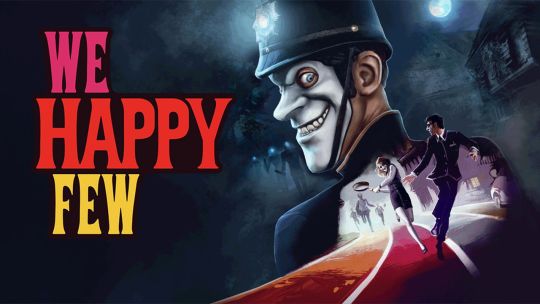
We Happy Few [2018]
Originally advertised as some kind of procedurally-generated stealth horror survival game that people kept insisting was "like BioShock" even though there is literally zero correlation or even vague resemblance to BioShock, this game's crowdfunded development process was a long hard rollercoaster ride through concept and scope changes, getting picked up by major studios and publishers, a constantly evolving marketing campaign, and a loud, rude blasting of negative press right before and right after launch due to bad take misinformation and some game-breaking bugs on Day One.

We Happy Few started as a Kickstarter project from Compulsion Games, a small studio known only for their previous game Contrast. In Contrast, you play as a child's silent imaginary friend in a cabaret dancer costume who can phase in and out of backgrounds to become a shadow on the wall and solve platforming puzzles. Working together, you help the child navigate through her emotions as her parents struggle through their own relation-shit in an early 1900s European port town. Seeing as their first game was stylish as hell and widely praised among indie crowds, it's no surprise that a Kickstarter for a new game from that studio became an instant success, so much so that it caught the eye of several big studios (Microsoft and Gearbox Publishing), and it quickly turned into a vastly bigger project with many more hands working on it. The proc-gen element was downtuned and streamlined, and the main emphasis of the game became about survival, stealth, and story.

And let me tell you. In terms of story, this game is phenomenal. The simple premise is that you play through the lives of three people living in 1950s-60s England, under a government that is forcing everyone to take these candy pills called Joy that make you instantly and excessively cheerful, so you can easily forget about all the horrible things that the government wants you to forget ever happened about The War, the Missing Children, and all the people still actively dying of malnutrition from the ongoing Famine and all that. The people are mandated to forget their worries, grin and bear it, pretend everything's just peachy keen, and if you refuse to take that pill, people will notice your un-cheerful behavior and call the police to track you down and beat you senseless. Can't have any Downers in our perfectly lovely happy town, now can we?

The game's art direction features two stark parallels between a dreary English village and early 60s-70s psychedelia (with a hint of A Clockwork Orange for good measure), and a soundtrack influenced by bands of the era, such as The Doors, The Beatles, The Byrds, etc. The dichotomy of looting dilapidated rural homes while avoiding plague-ridden peasants versus the rainbow streets and lava lamp light show sex dens in the cities is truly astonishing. It's a game about, funnily enough, Contrasts between the bright and cheerful life everyone is forced to think they're living, and the grim depressing reality that lies underneath. Many people initially assumed this meant the game had some kind of anti-drug message about not relying on your depression medication cause pills can't fix everything, but it's clear right from the get-go that's nowhere near the case. We Happy Few is a story about revisionist history, the pressure to conform, submission to a corrupt system that might not even know what it's doing, and the very British notion of Keeping Calm and Carrying On as if major atrocities hadn't just been committed in a massive world war.

Gameplay-wise, this is a strange hybrid of survival and stealth, with combat definitely being present, but taking a backseat for the most part. It's much easier to distract enemies than fight them, and many of the characters excel at hiding in plain sight, provided you don't do anything to make people suspicious, like running and jumping around or breaking into houses to raid them for food. You do have options and skill trees though, so the game does allow you to tailor it to your own playstyle to a degree. I had significantly more fun playing it slow and methodical, sneaking up and choking out enemies, and watching NPCs bump into each other awkwardly while quoting ancient English literature for no apparent reason. Taking it slow, reading every scrap of paper and Journal I found, my final playtime was about 50~ hours.

Again though, let me gush about the story for a second. The base game has three full chapters, each of which has you play as a different character with different strengths and game mechanics (including such wildly inventive ideas as the burden of motherhood taking up inventory space if you don't periodically check on the baby you have to leave at home, and carefully maintaining a balanced blood sugar level so you don't collapse?!). Their stories are all deeply connected in ways that aren't immediately apparent but are cool as hell once the pieces of the puzzle come together. Each chapter more or less takes place at the same time, but the events always play out slightly differently, because memory-altering drugs fuck with your sense of reality and make us all question the reliability of each narrator. If that wasn't already cool enough, the game also features three DLC packages where you play as three ADDITIONAL characters, each of whom is also a recognizable face in the main story if you're paying attention. These DLCs add even more neat mechanics and open up the story events even more in and around the main game. They were honestly all an absolute blast to play, especially if you were already as invested in the story as I was. And the subject material goes all over the place, touching on such highly specific topics as 60s science fiction, gay lovers, Beatlemania, trippy drug-induced murder mysteries, the British occupation of India, and plenty more. I can't stress enough what a unique storytelling experience this game has to offer. It really is unlike anything else I've ever played! But alas, we should probably talk about why nobody else seems to be as enthused about the game as I am...

Aside from the huge misunderstanding about the game's message, We Happy Few was bombed with criticism on Day One due to some major bugs that hadn't been ironed out - remember, for a $60 game backed by some big names in the industry, it was still very much an indie passion project from the start, and it's clear it wasn't given the full AAA treatment at all. Several big-name Game Reviewers (a field I detest almost as much as Cartoon Reviewers) ripped into the game for its bugs, and while I can't fault people for being mad at broken quests and at least one full-on softlock, not everyone experienced those bugs, and many of them were ironed out in later patches. It's almost like chasing those Day One reviews and videos are a bad idea for people who want to Enjoy Games. Sadly, first impressions are all that seem to matter anymore in gaming, so those early negative reviews still sting to this day. But people out there will give games like Skyrim a perfect 10/10 despite a significant number of similar bugs (hell, they're almost a charm of the series at this point), so why should an indie game not be given the same graces?

In closing? We Happy Few is a phenomenal story in a completely fresh setting that really doesn't feel like anything else before it. The game has been criticized to hell and back for its early bugs or for "boring" gameplay or whatever the Review outlets chose to report, but to me it stands out as an extremely unique experience in a sea of Lowest Common Denominator games. I'd rather play an imperfect or buggy game with a unique or highly niche premise than yet another polished piece of pristine pop pleasure, and I genuinely think people would enjoy games like We Happy Few if they just lowered their goddamn expectations for once in their lives.
#unfairly maligned games#we happy few#fuck the haters I have nothing but love and praise for this game#it hit ALL my pleasure sensors and really resonated with me#and if I can convince even one other person to try it then I have succeeded in my mission
120 notes
·
View notes